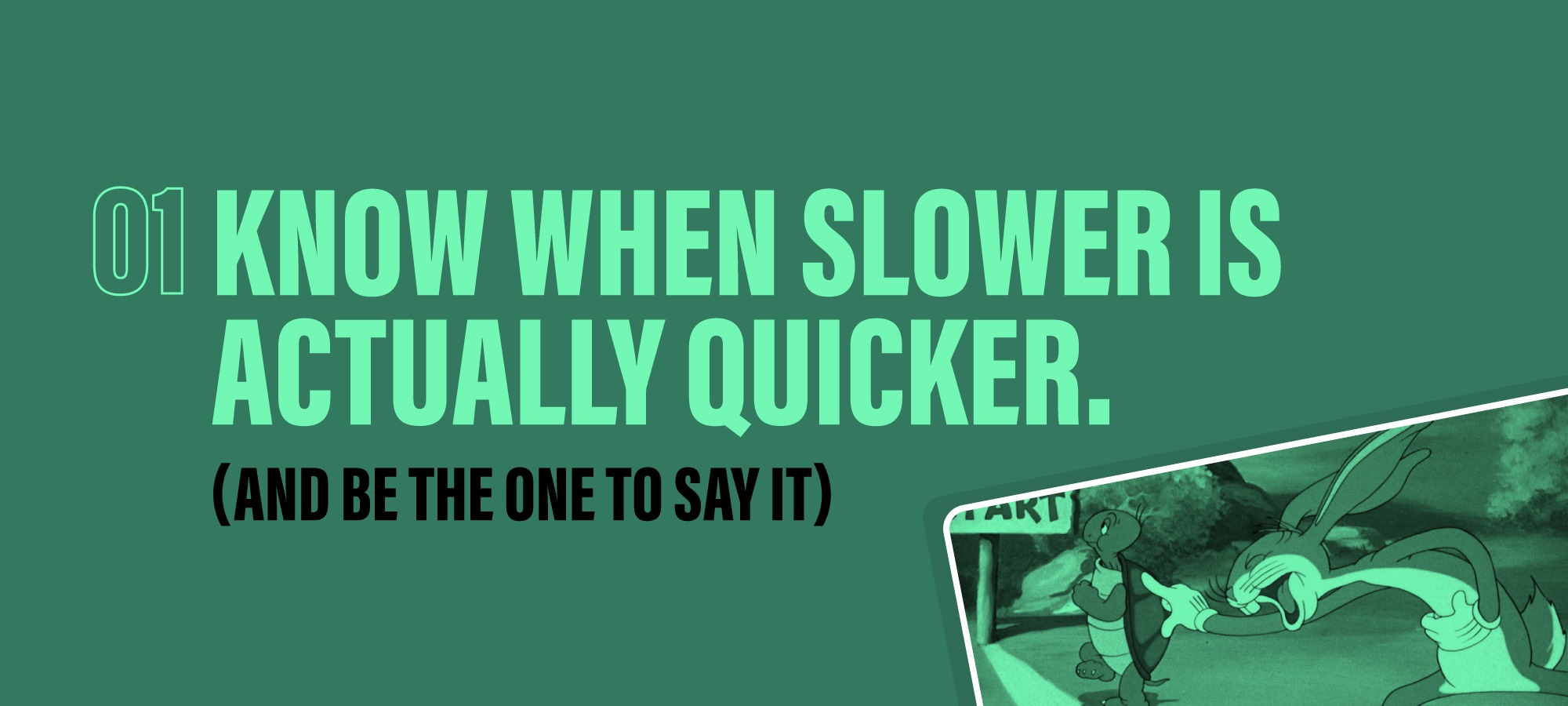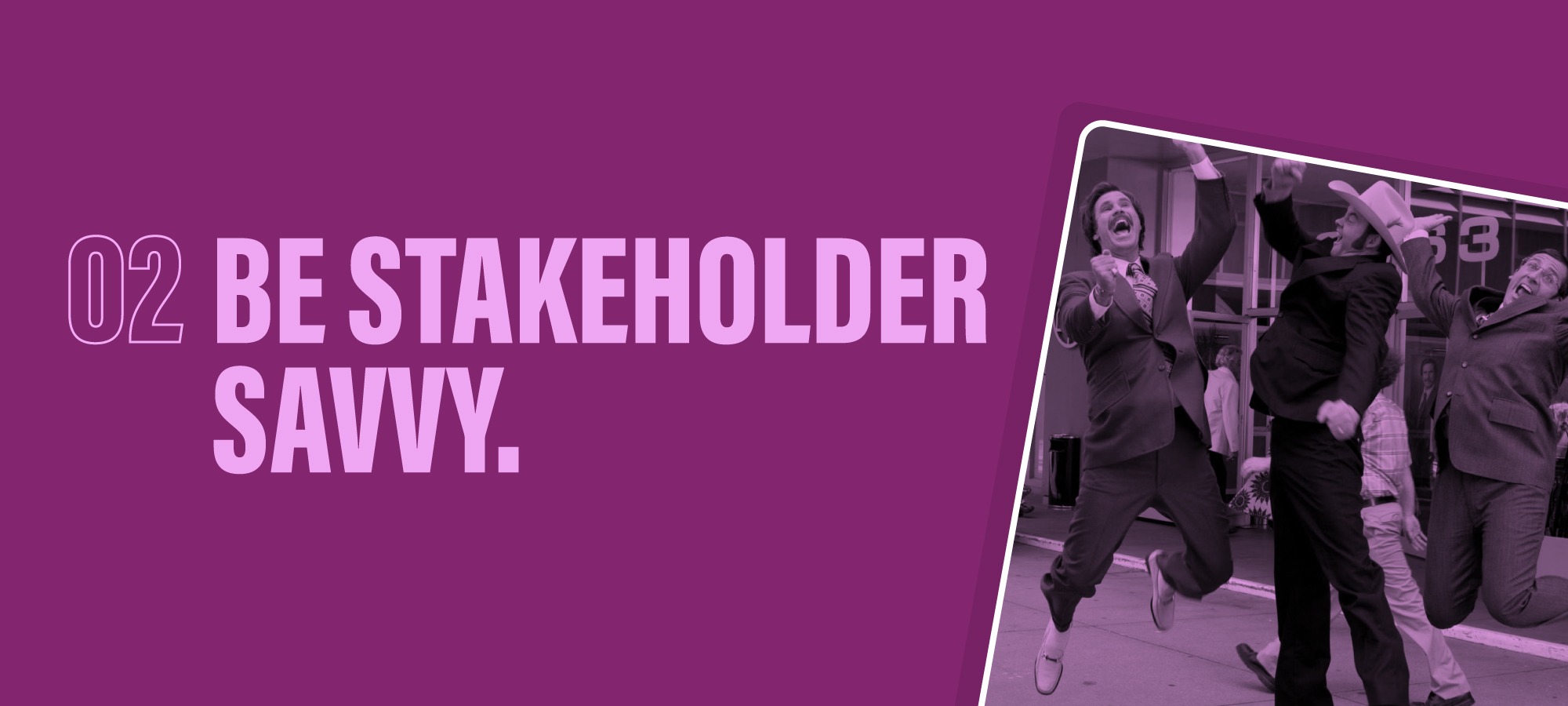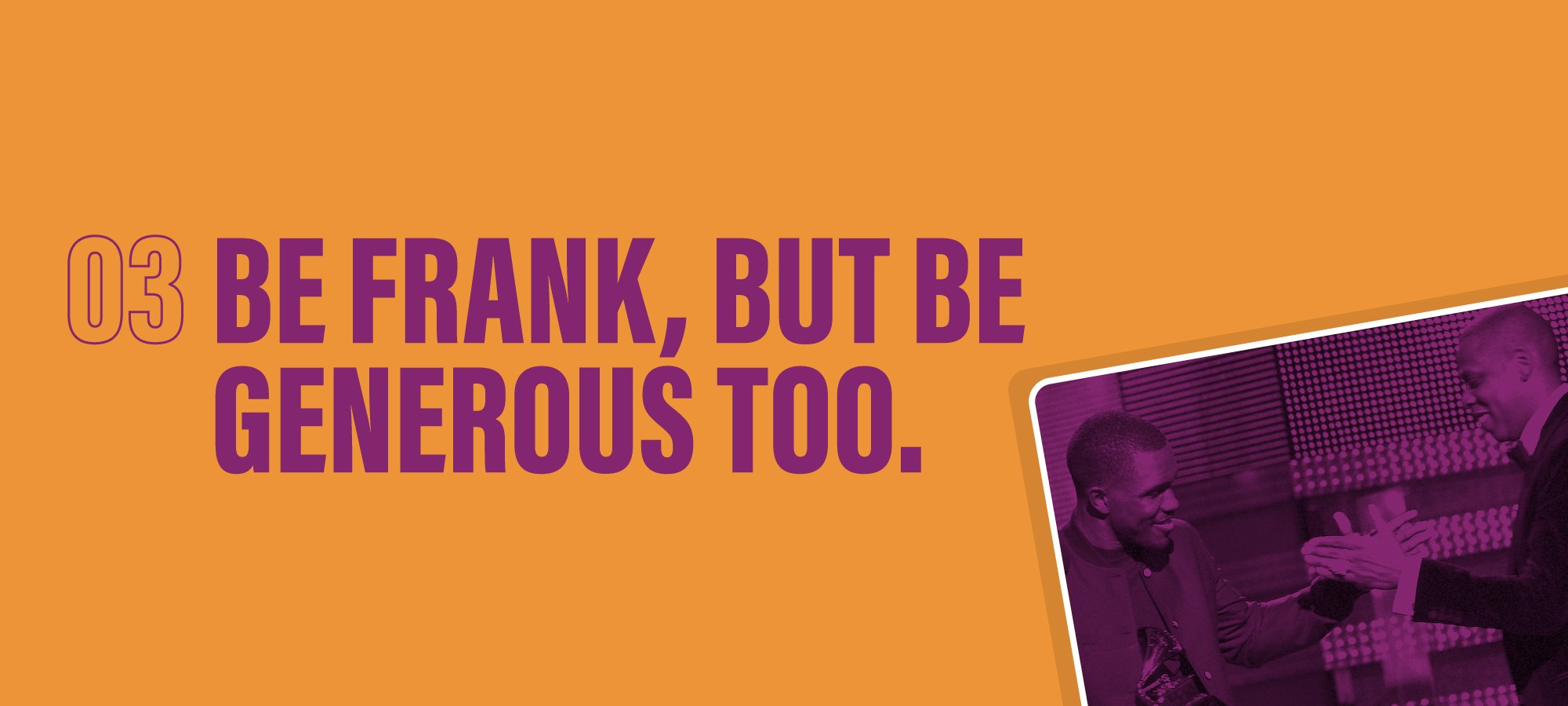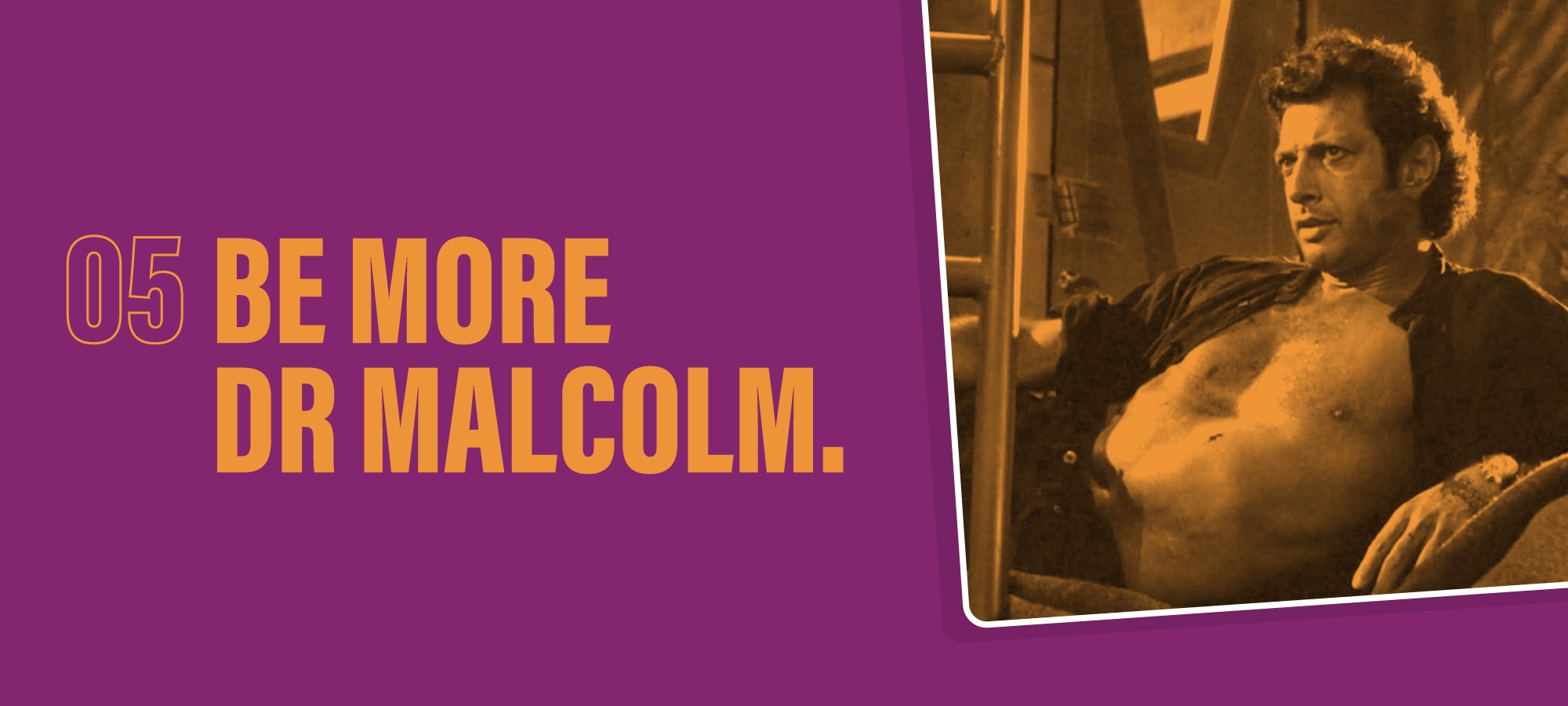Starting Up With Start-Ups.
Experience, wise grannies and dash of Jeff Goldblum.
If you’re a marketing agency, working with start-ups is brilliant.
Or terrible.
Or brilliant and terrible, sometimes at the same time.
That’s the thing, it can go one of two ways…
It could be an incredible opportunity to be at the beginning of something special; a chance to help build and develop something with real market impact; often with clients who are genuinely hungry for fresh ideas; open to trying new approaches to market, whether that’s through creative concepts, social or PR strategy.
Or…it could be really messy and chaotic. With a company (often with really good intentions) running headlong into marketing before they’ve got the business and brand walking; before there’s solid foundations to build on and a vision beyond the short term; and where brand success is on a wing and a prayer (instead of insight and strategy).
Most agencies will have experienced both at one point or another – we definitely have. And we’ve also been swept up in the chaos, allowing that potent cocktail of excitement and pressure to nudge strategy and consideration to one side. That happens – and it comes from a place of trying to offer a great service. But ultimately, it doesn’t help.
But, as so often is the case, experience breeds wisdom, so we thought we’d share a few things we’ve learnt about working with start-ups…

Start-ups often have a natural energy. An impatience to get going. A need for things to be done… now!
That’s a really positive thing – it’s the same energy that’s turned an idea for a business into an actual business.
If you’re an agency trying to bring a brand to market, it’s really important not to rush, and to make sure the brand has the strategic foundations in place before it launches.
It’s a tough thing to stand firm on (and risk being the client buzzkill) but trust us, they’ll be thanking you in the long run.
Echoing the words of wise grannies everywhere, you only get one shot at a first impression. If the brand doesn’t make a good one, then that haste can actually slow brand growth.

In our experience, start-ups tend to be quite lean operations (at least at the beginning).
That means that key decisions (things like approvals and sign-offs) tend to be made by a small and select number of people – or sometimes just one, often a founder.
That’s great – but only if you can get that key decision maker (or makers) in a room/zoom with you.
Firstly for them to fully explain their vision for the business and brand, and secondly for them to get some visibility and understanding of you – the agency upon which certain hopes and expectations can be pinned.
Apart from anything else, establishing a relationship with key stakeholders (as well as your day to day contacts) is not only good for the genesis of the work, it’s also good for the management of the account – preventing crossed-wires or miscommunications.
It also means that if you do face challenges, you’ll be in a better spot to work it out.

As the first two points attest, being honest with your expertise is a big part of the service an agency will offer to a start-up.
But there’s more to it than just honesty. It’s important to temper that frankness with generosity.
Because mistakes happen. And start-ups, by their very nature, are giving an idea a go – and so there’s always a learning curve. In just the same way that you’d want a client to understand an honest mistake on an agency’s side, you need to be generous and realistic with your expectations.
Maybe a brief changes at the last minute. Maybe there’s an oversight in the requirement you’re asked to deliver, or contradictory feedback. Of course, there needs to be a commercial understanding in place if any of this impacts time/work, but it’s also important to remember that errors and corrections and problems and solutions are very much part of the job – and likely coming from a good place.
After all, you knew they were a start-up when you started working together, so to a certain extent you need to be prepared to roll with it.

If you’re not, then maybe you aren’t the right person or agency for the job.
For all that an agency sometimes needs to be the handbrake (see point 1!) or the sense check, you all need to be able to see the business vision (see point 2!) and share in the excitement that the client has.
You don’t want to be giddy about it (in my experience excitement-driven moonwalks are best kept private) and of course you always need to bring a critical eye to the party, but there’s nothing wrong with getting into it.
In fact, I think that’s what’s needed to really bring your best work forward. The strategy, the creative concepts, the social campaigns, web development – all of these need the sort of understanding and creativity that comes from really wanting to be part of the project.

Remember when Jeff Goldbum creepily/charmingly* tries to chat up Laura Dern in Jurassic Park? Of course you do. Well, he’s talking about mathematics, with a specific spiel about Chaos Theory.
How is this relevant? Because things getting chaotic is an occasional pitfall of working with start-up clients. But at the very same time, it’s also fundamental to the opportunity, fun and potential of a client.
Chaos Theory is all about the intersection between unpredictability and order; that idea that small decisions (good or bad) can have big consequences down the line; that you won’t always know what’s around the corner. And while some of the things we’ve mentioned earlier can help add some extra order to the unpredictability, there’s a limit to that.
Which brings us to the key question. The one an agency needs to ask itself about working with start-up clients: are we good with that?
At ilk, the answer’s a resounding yes.